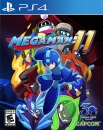The PlayStation and PlayStation 2 were some of the biggest success stories in the video game industry. Not only were they among the first game systems to sell over 100 million units worldwide, but their use of multimedia and Sony completely rewriting the book on third party relations knocked the former home console king, Nintendo, off the throne. Nintendo was still sticking with expensive media and archaic licensing policies with the Nintendo 64 and launch of the Nintendo GameCube, which caused developers and publisher who once backed their consoles like Capcom and SquareSoft, to shift their focus to PlayStation.
Sony wanted to carry its success with the PlayStation brand into a new market, the handheld market. The one sector of the video game industry that Nintendo had effectively ruled with an iron fist for most of the 90s and early 2000s. The PlayStation Portable (PSP) was announced in 2003, and was fully revealed and released one year later in Japan in 2004. Nintendo responded with the Nintendo DS the same year. On paper, it seemed like Nintendo didn't learn anything from the last two home console defeats. Once again using a more expensive proprietary game format that couldn't hold as much as the PSP's optical UMD discs.
Yet against all odds, the DS was a hit... a massive hit. The second best selling game system of all time at 152 million units kind of hit, within a 3 million striking distance of the PS2 kind of hit. While the PSP was a decent success in its own right at 80 million, Sony's plan to dethrone Nintendo in the handheld space didn't pan out the same way as it did in home consoles.
So why wasn't Sony able to repeat its dominance in the console market with the handheld scene, even when Nintendo had inferior hardware technically? Well it was a combination of Nintendo utilizing its tried and true formula for handheld success (Cheap, easy to develop for hardware with a decent battery life, quality exclusive games, and an affordable price), the innovative features of the DS with it's touch screen and mic. But also, I think Nintendo had a better understanding of the stakes this time. A big reason Sony gained a place in the gaming industry was because they took advantage of Nintendo's hubris by aggressively courting third parties with more favorable licensing agreements very early in the console's life. Meanwhile Nintendo just arrogantly assumed developers will come to N64 on the strength of the Nintendo brand alone, and made little to no effort to improve those relations before launch. That, combined with CDs and the 1-2 year headstart Sony had gave them the advantage with 3rd parties.
But Nintendo avoided that mistake with DS, and shopped system around to publishers and developers as early as they could to get ahead of Sony (just look at the third parties already pledged support to the DS at its E3 04 reveal). The DS was also way easier to develop for than the N64 (which was made hard to develop for on purpose mind you), and while the Game Cards may have been a bit more expensive to produce and held less than UMDs, they were still nowhere near as bad N64 cartridges. Plus, the rise of cheap, readily available compression tools and flash memory coming down in price meant the storage differences ultimately never mattered that much in the end. Plus the lack of a disc drive allowed the system to stay relatively durable with low heat consumption and a good battery life compared to the PSP.
So while the PSP's power and media format helped it gain some important exclusives not possible on Nintendo's handheld (Monster Hunter most notably), Sony also didn't have the same monopoly on third parties that they did with the PS1 and PS2 with just as many companies supporting the DS as well. In fact the DS and PSP gen is perhaps one of the only times we ever saw Sony and Nintendo actually be competitive with each other in terms of third party relations.































































